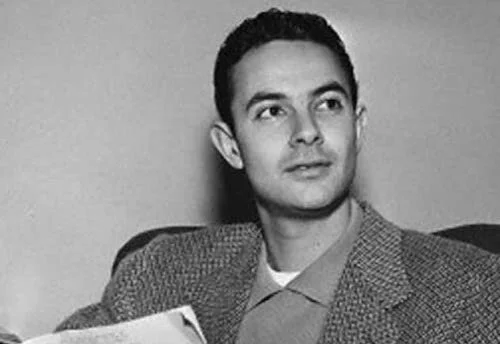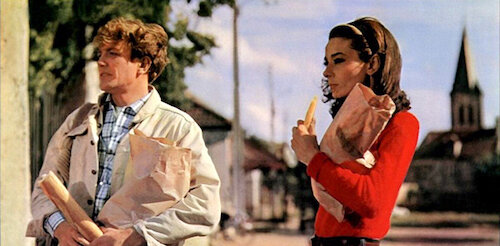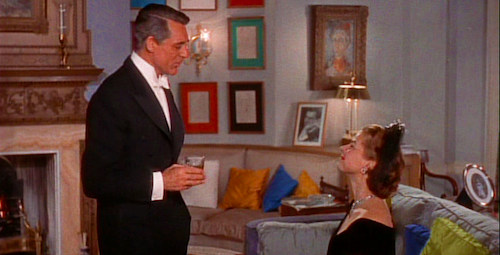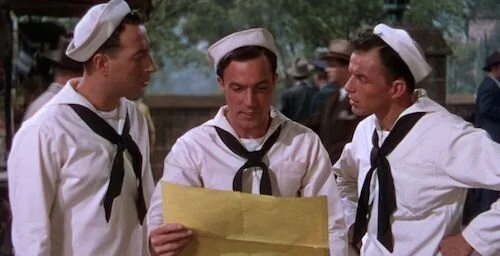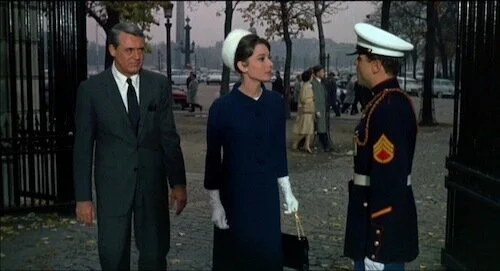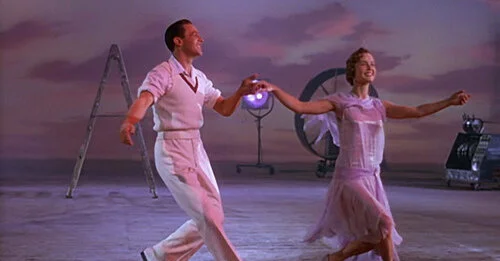Stanley Donen: Five Films for Newcomers
Today is the second birthday of Stanley Donen since he passed away early 2019. He would have been 96 years old, meaning he witnessed cinema expand since his over-fifty years as a filmmaker; he hopefully noticed the ripple effects of his own influence to the medium. Donen was a major force in the evolution of the cinematic musical, being a major proponent in having musical numbers a part of the actual narrative (and not just a dance number represented in a literal production). Any passing thought, exclamation or love, or form of story telling in musical form today is likely directly related to Donen’s best works. However, he didn’t only specialize in musicals, as some of his prime-era works were genre benders or stylish dramas. Nevertheless, Donen’s major contributions to cinema as a whole (he was one of the final cherries on top for the push of Technicolor in a common fashion, as well) can always be recognized. Today is no less of a perfect opportunity. Here are five films for newcomers to the works of Stanley Donen.
5. Two for the Road
Pairing up with Audrey Hepburn for a third time (the first time Funny Face, which is an honourable mention on this list, and the second time Charade) was a recipe for success for Donen. Yet, this was his chance to try something new for both of their careers, and so he did. The fragmented drama Two for the Road pieces together a number of different timelines in a relationship that started off with sparks, and has ended up on the verge of separation. Co-starring Albert Finney, Two for the Road is a brief look at what Donen could have brought to the cinematic tragedy had he continued further down this path. It’s an interesting experiment, and one of his more serious efforts (still nothing too dark, of course).
4. Indiscreet
Almost a precursor to Charade (the sharp screwball remnants of dialogue, and the casting of Cary Grant), Indiscreet is more of an underrated Donen film that doesn’t hurt to try. Reuniting Grant with his Notorious costar Ingrid Bergman, this romantic film is relatively basic on the surface: love is in the air, but one of the party members is unfortunately married to someone else (or so they claim). It’s not one of Donen’s most daring films narratively, but he exercises his directorial capabilities here with the uses of rich colours in a non-uplifting setting, and the experimentation of music-and-visuals without being an actual musical of any sort.
3. On the Town
Twenty four hours with three sailors on shore leave. That’s Stanley Donen’s introduction to the world, in Technicolor fashion back in 1949. His first collaboration with musical song-and-dance-man extraordinaire Gene Kelly (of a few), On the Town is a fleeting experience of a film that basks in the blissfulness of all that a city can offer (where else but “New York, New York”?). Straight and to the point, this joyful musical captures the wonder of discovery, and the escape of a mundane life. Knowing what glee Donen was going to bring to audiences worldwide after this debut, it’s easy to see how On the Town was the starting point to such a colourful, cheerful, and magical career.
2. Charade
Often called the greatest Hitchcock film that Alfred Hitchcock never made, Charade is a genre-bender for the ages (and perhaps the finest there ever was). Cleverly comparing the film’s many styles (romance, comedy, murder mystery, thriller) with the countless faces of a deceptive criminal — as well as the duty of an actor to take on different personas — is what Charade does best, but it’s far from its only strengths. Being genuinely funny and witty (Peter Stone’s screenplay is brilliant) whilst shocking and mysterious is a balancing act that someone like Donen can pull off with their hands tied, and it shows; it’s absolutely effortless in its chameleon-like nature.
1. Singin’ in the Rain
This has to be Donen’s masterpiece, likely because it’s one of the finest musicals of all time, if not the finest musical (the genre he specialized in). Co-directed once again with Gene Kelly (before their falling out a few years later), Singin’ in the Rain is a statement on the evolution of sound in cinema. The film comments on the transition into talking pictures, while Singin’ in the Rain set a precedent for musicals ever since. The music is marked as mandatory to the story, because each tune either continues the plot, sets a tone for a transition into another scene, or evokes a current mode or topic of discussion. Keep in mind that most of the songs here weren’t even written for the film (outside of “Moses Supposes”, and arguably “Make ‘Em Laugh”), but you likely associate them with this film because of how perfectly the sequences here capture the spirit of each song; can you even think of another scene featuring this film’s title song without imagining this rendition of the number first? If you want to discover the works of Stanley Donen, there is no question that you have to start here first. If you want a film that’s strictly his own, go with the as-perfect Charade, but Singin’ in the Rain is his pivotal moment in cinematic history.
Andreas Babiolakis has a Masters degree in Film and Photography Preservation and Collections management from Ryerson University, as well as a Bachelors degree in Cinema Studies from York University. His favourite times of year are the Criterion Collection flash sales and the annual Toronto International Film Festival.

